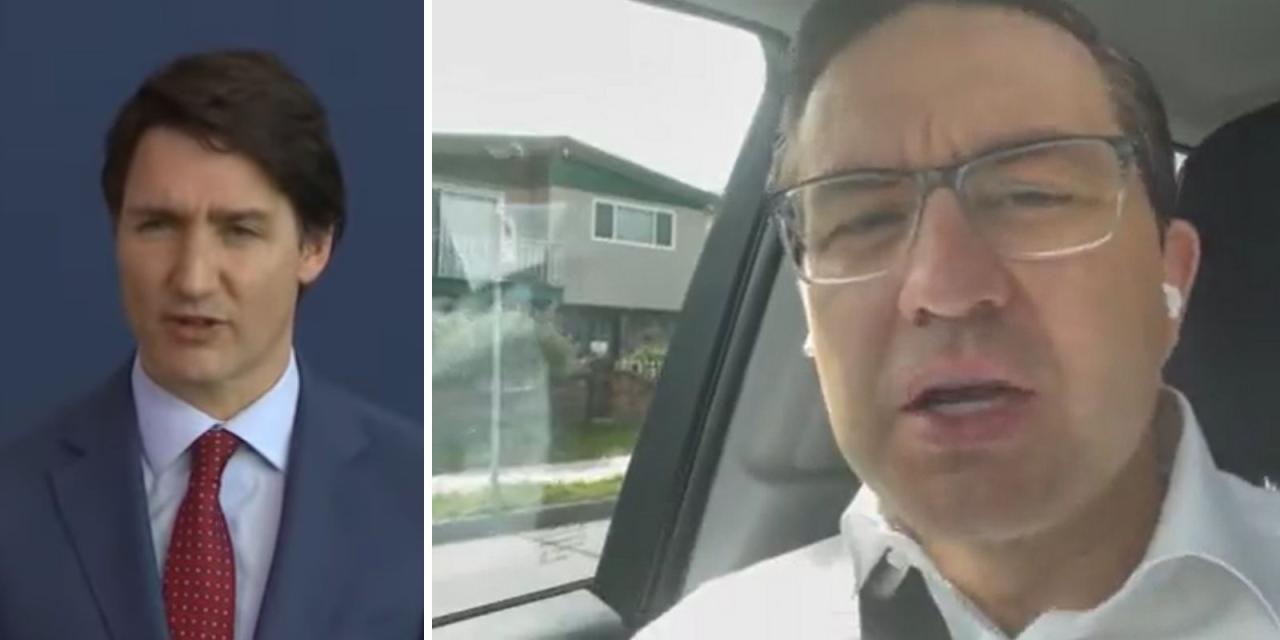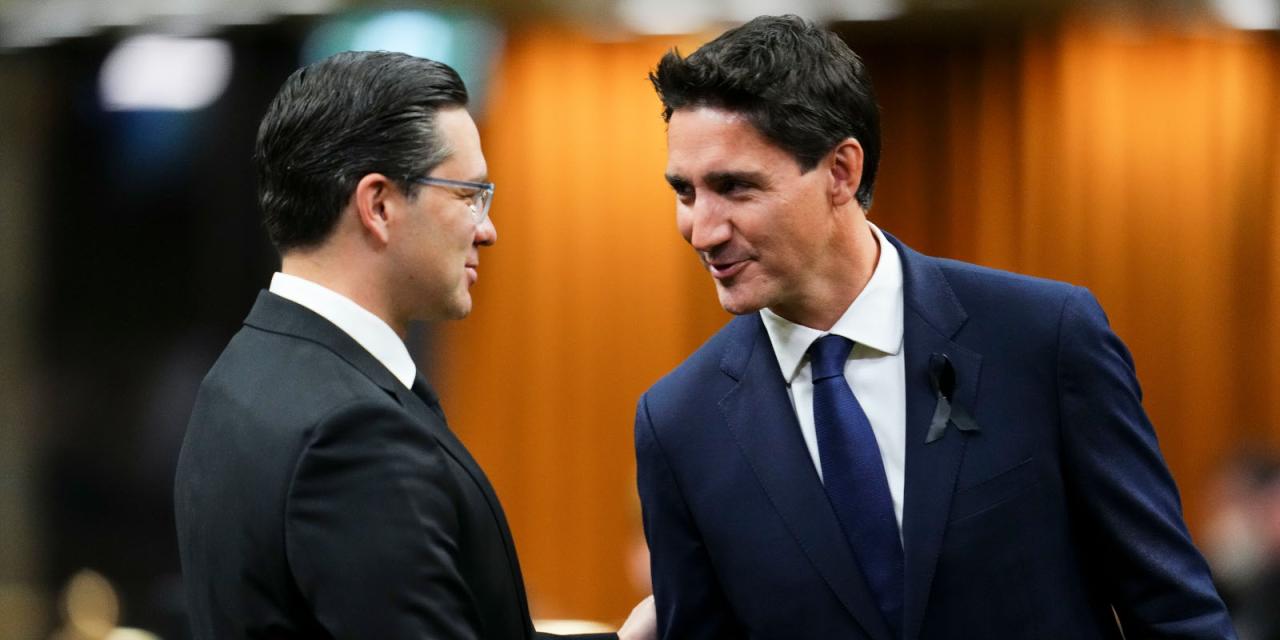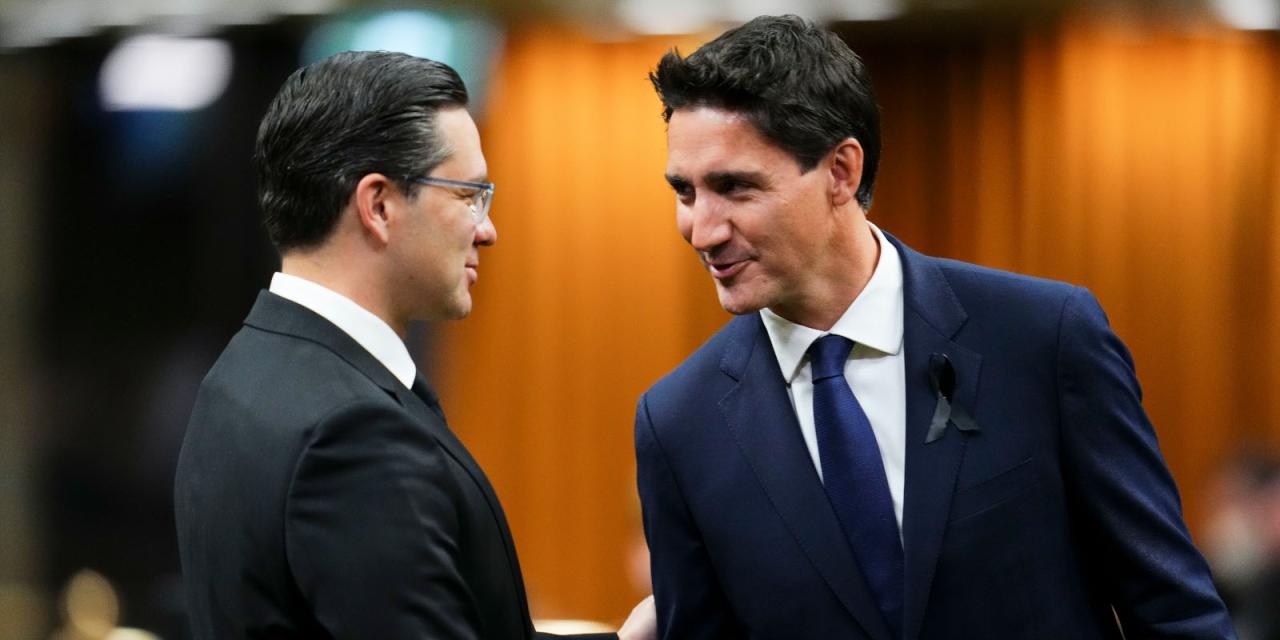Poilievre says House should be recalled as NDP vows to vote down the motion, setting the stage for a significant political showdown. Pierre Poilievre’s call for an immediate recall of the House of Commons has ignited a firestorm of debate, pitting him against the NDP who have vowed to block the effort. The underlying reasons for this clash, the potential consequences, and the broader political implications are multifaceted and deserve careful consideration.
Poilievre’s rationale centers on [insert specific events/issues cited by Poilievre], arguing that urgent action is required to address these matters. He has Artikeld a proposed agenda for the recalled session, including [briefly list key agenda items]. Conversely, the NDP’s opposition stems from [insert NDP’s key arguments against recall], fearing [mention potential negative consequences from NDP perspective]. The contrasting stances highlight deep divisions within the Canadian political landscape and raise crucial questions about parliamentary procedure and political strategy.
The political showdown continues as Poilievre pushes for a House recall, facing certain defeat with the NDP’s vowed opposition. This intense political battle almost overshadows the exciting football match, check out the comprehensive match report for the thrilling Crystal Palace 1 – 5 Arsenal game here: Crystal Palace 1 – 5 Arsenal – Match Report. Ultimately, the political maneuvering and the football results both highlight contrasting displays of power and strategy.
The outcome of Poilievre’s recall effort remains uncertain.
Poilievre’s Call for a House Recall and the NDP’s Opposition
Pierre Poilievre’s recent demand for a recall of the House of Commons, met with the NDP’s vow to vote it down, highlights a significant political clash in Canada. This situation underscores deep divisions over key policy issues and strategic political maneuvering. The following sections analyze the various aspects of this developing situation.
Poilievre’s Rationale for a House Recall

Poilievre’s call for a recall centers on his assertion that the current government is failing to address pressing national concerns. He cites specific policy failures and economic challenges as justification. His proposed agenda for a recalled session likely includes debates and votes on issues such as inflation, cost of living increases, and the government’s response to economic hardship. While specific instances of past successful recall attempts are limited in Canadian parliamentary history, Poilievre might point to instances where pressing matters necessitated immediate parliamentary action, though these are likely to be exceptional circumstances and not directly comparable to the current situation.
NDP’s Opposition to the Recall
The NDP’s decision to oppose the recall stems from their assessment of the political motivations behind Poilievre’s request. They likely perceive it as a purely partisan maneuver designed to destabilize the government rather than address genuine national issues. The NDP’s opposition could lead to increased political polarization and potentially impact public trust in the political process. Their key arguments will likely focus on the lack of necessity for a recall and the potential disruption to the parliamentary schedule.
Compared to other parties, the NDP’s position might be seen as more steadfast in its opposition, while other parties may adopt a more nuanced stance depending on their political calculations.
Potential Impacts and Consequences of the Recall Debate, Poilievre says House should be recalled as NDP vows to vote down

The potential impacts of a successful recall are significant. It could lead to the swift passage or defeat of legislation currently under consideration. Public perception of the involved parties would be heavily influenced by the outcome and the narratives surrounding it. Short-term consequences could include increased political instability, while long-term effects might involve shifts in public opinion and electoral outcomes.
| Potential Benefits of Recall | Potential Drawbacks of Recall |
|---|---|
| Swift action on urgent issues | Disruption of parliamentary schedule |
| Increased government accountability | Increased political polarization |
| Opportunity for constructive debate | Potential for unproductive political theater |
| Enhanced public engagement | High cost and logistical challenges |
Public Opinion and Media Coverage of the Recall
Public opinion on the recall is likely divided, mirroring the partisan nature of the debate. News sources will likely present contrasting narratives, reflecting the positions of different political parties. Public reactions might range from strong support for Poilievre’s call to outright condemnation. A visual representation of public sentiment could be a bar chart showing the percentage of support and opposition across various demographics, potentially revealing regional variations in opinion.
Parliamentary Procedures and Precedents Related to Recalling the House

The parliamentary procedures involved in recalling the House are complex and require a specific process Artikeld in the standing orders. Past instances of similar procedures are rare in Canadian history, primarily occurring during times of national crisis or significant political upheaval. The current situation deviates from established parliamentary norms in its overtly partisan nature and the lack of a clear consensus on the urgency of the issues cited.
Underlying Political Dynamics Driving the Recall Debate
Poilievre’s actions are driven by a desire to capitalize on public dissatisfaction with the government and solidify his position as a strong opposition leader. The NDP’s response is a strategic move to protect the government and avoid being seen as complicit in any potential disruption. The broader political context includes ongoing economic challenges and the approaching federal election.
- Increased political instability in the short term.
- Potential shift in public support for the governing party.
- Impact on the upcoming federal election.
- Strengthening of partisan divides.
- Long-term changes to parliamentary procedures or norms.
The clash between Poilievre’s demand for a House recall and the NDP’s firm opposition highlights a critical juncture in Canadian politics. The outcome will not only determine the immediate fate of [mention specific legislation or issues affected], but will also significantly shape public perception of both parties and influence the broader political landscape in the coming months. The debate underscores the complexities of parliamentary procedure and the high stakes involved in navigating political deadlock.
The success or failure of this recall attempt will have lasting repercussions, potentially impacting public trust in government and setting the stage for future political battles.
User Queries: Poilievre Says House Should Be Recalled As NDP Vows To Vote Down
What are the specific parliamentary procedures involved in recalling the House?
The process involves a formal motion put forward by the government, requiring a majority vote to pass. Specific steps and precedents will vary depending on the circumstances and the standing orders of the House.
The political tension surrounding Poilievre’s call for a House recall, with the NDP’s vow to vote it down, highlights the unpredictable nature of current events. This is further underscored by international incidents like the recent kazan drone attack , which serves as a stark reminder of global instability. Such events can easily overshadow domestic political maneuvering, potentially influencing public opinion and the overall political climate surrounding Poilievre’s recall efforts.
What is the historical precedent for similar House recalls in Canada?
While infrequent, there have been instances in Canadian history where the House was recalled to address pressing national issues. Researching these precedents can provide valuable context for the current situation.
How might public opinion influence the outcome of this political standoff?
Public pressure, as demonstrated through polls, social media engagement, and media coverage, could sway the decision-making process of both the government and the opposition parties.
What are the potential long-term effects on the governing party’s popularity?
Depending on the public’s response to the recall attempt and the subsequent handling of the issues at hand, the governing party’s popularity could see either a boost or a significant decline.
